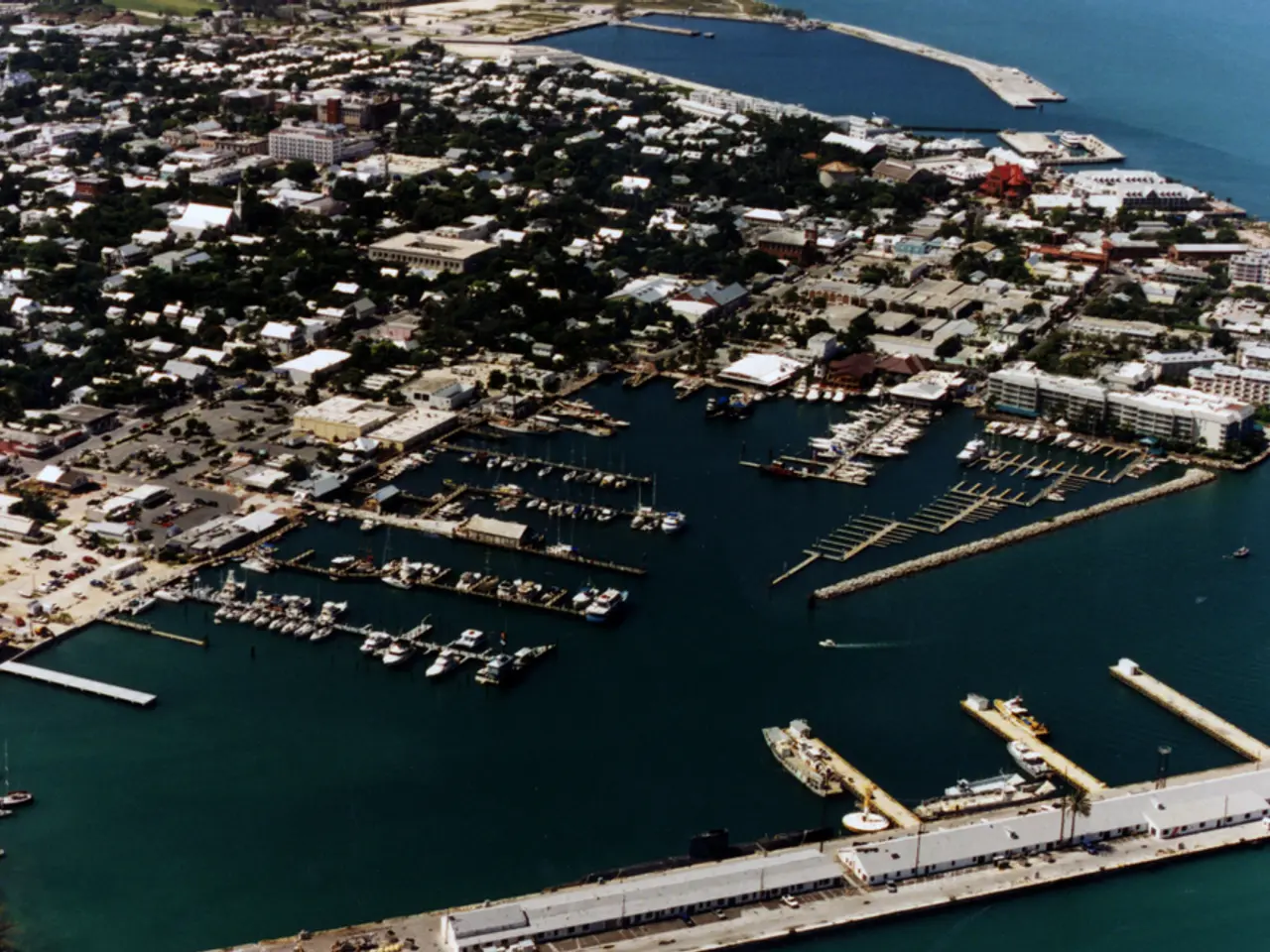Deepwater Horizon Oil Spill: BP Faces Record-Breaking Settlement - Dubbed 'Largest Environmental Fine Ever Imposed'
In a landmark decision, BP has agreed to a settlement of approximately $20.8 billion with the U.S. government and several Gulf Coast states to compensate for the environmental damage, economic impacts, and regulatory violations caused by the 2010 Deepwater Horizon oil spill. This settlement, announced in 2015, is one of the largest environmental disaster settlements in U.S. history.
The legal resolution involves several key components. In March 2012, an initial settlement of $7.8 billion was reached with plaintiffs’ representatives, covering economic losses, medical claims, and 21 years of medical monitoring. This settlement was approved in December 2012 after appellate and Supreme Court review.
BP was also subject to separate civil and criminal investigations and lawsuits led by the U.S. Department of Justice, resulting in penalties for Clean Water Act and Oil Pollution Act violations. The final government settlement of $20.8 billion, confirmed by 2025, marks a much larger amount than the earlier settlement sums.
Individual municipalities and Gulf Coast states also reached separate settlements with BP. For instance, Mobile County approved a settlement of $1.8 million in 2025, following an $18.7 billion settlement with five Gulf Coast states announced earlier that year.
The settlement requires BP to set aside $350 million for a research program to study the impact of the oil spill on the Gulf ecosystem. The Department of Justice will continue to stand with the people of the Gulf region as they work together to rebuild and protect its natural resources.
The settlement also includes $750 million for a trust to fund long-term projects in the Gulf region. The trust will be managed by the National Fish and Wildlife Foundation and the Gulf of Mexico Alliance. Over $5.5 billion will be allocated for early restoration projects in the Gulf region, with the early restoration projects focusing on areas with the most immediate need, such as wetlands, beaches, and wildlife.
The consent decree, ordered by U.S. District Judge Carl J. Barbier, also includes requirements for BP to improve its safety and environmental practices. The research program will be conducted by universities, research institutions, and government agencies. The settlement is expected to fund over 100 restoration projects in the Gulf region over the next 15 years.
Attorney General Loretta E. Lynch has released a statement regarding the approval of a consent decree settling the Deepwater Horizon Oil Spill case. In her statement, she thanked her predecessor, Attorney General Eric Holder, and various federal agencies and states for their role in the settlement.
The Deepwater Horizon oil spill, the largest offshore oil spill in U.S. history, has caused significant environmental and economic damage to the Gulf region, known for its marine life, coastal systems, and beautiful beaches. This settlement marks a significant step towards restoring the region and ensuring the long-term protection of its natural resources. The Department of Justice, under Attorney General Loretta E. Lynch, will continue to work towards this goal.
- The settlement for the 2010 Deepwater Horizon oil spill, a significant environmental disaster, has set aside $350 million for a research program on the impact of the oil spill on the Gulf ecosystem.
- In the settlement, there's a provision for a trust fund worth $750 million to finance long-term projects in the Gulf region, managed by the National Fish and Wildlife Foundation and the Gulf of Mexico Alliance.
- The consent decree includes $5.5 billion for early restoration projects in the Gulf region, helping areas like wetlands, beaches, and wildlife that were most affected by the spill.
- BP, under the settlement, is required to improve its safety and environmental practices, demonstrating a commitment towards the conservation of the environment.
- The settlement funds are expected to support over 100 restoration projects in the Gulf region over the next 15 years, signifying a substantial investment in the region's environmental recovery.
- In U.S. history, the $20.8 billion settlement for the Deepwater Horizon oil spill ranks among the largest environmental disaster settlements.
- The settlement is a result of BP's violations of the Clean Water Act and the Oil Pollution Act, which were investigated and penalized by the U.S. Department of Justice.
- As part of the settlement, BP has agreed to compensate Gulf Coast states for the economic impacts and regulatory violations caused by the spill.
- In addition to the settlement, BP has also been involved in separate civil and criminal investigations, lawsuits, and penalties that involve the U.S. Department of Justice, business policy-and-legislation, finance, personal-finance, and general-news media.




